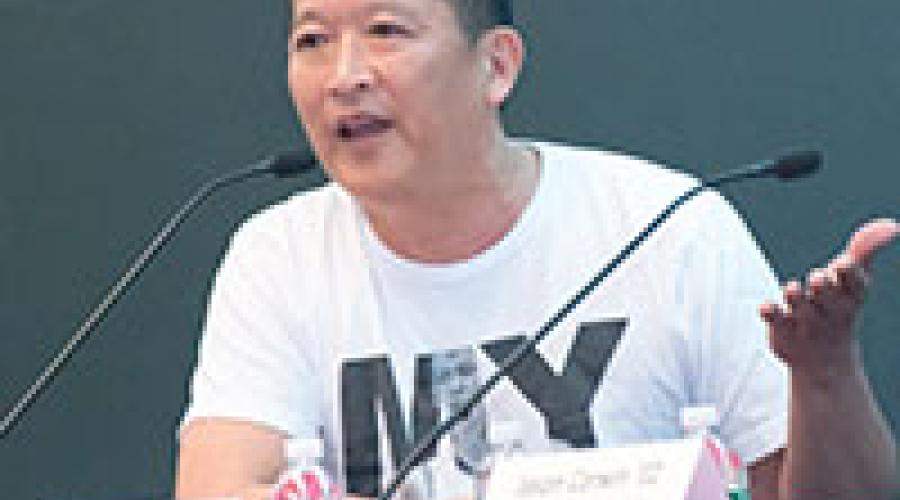
Movies and More
When Teddy Zee '79 describes himself, he uses the phrase "heat-seeking missile."
His interests are wide-ranging, from producing movies and working on interactive media ventures to consulting with a Chinese company on the construction of a theme park.
"It sounds like I'm scattered, but it's me taking my passions to bring value where I can."
Zee, who earned his bachelor's degree from the ILR School, returned for Reunion 2013 to speak on a media and entertainment industry panel.
"I never would have attended ILR if it hadn’t been for my father," Zee says. His dad worked in the kitchens at resorts in the Catskill Mountains and belonged to a labor union.
Zee applied for, and received, one of the union’s scholarships to study at ILR. "I guess you could say I was destined to attend."
After ILR, Zee landed a job in the personnel department at NBC, but decided that he wanted to play a bigger role in the entertainment field.
He went to Harvard, earned an MBA, and eventually found himself working as a development executive at Paramount Pictures, and later as a studio executive at Columbia Pictures.
In his roles as president of Overbrook Films and Davis Entertainment, Zee produced The Pursuit of Happyness and Hitch, films starring actor Will Smith that earned more than $600 million in ticket sales worldwide.
"The game in Hollywood is changing. It's all about big blockbusters, with sequels and franchises. And the (production) cycles are long and frustrating. Hitch took five to six years to develop before we ever got it made."
He adds that the actors' and writers' unions are very powerful, and "they have to protect the workers against the interests of the studios."
One of his proudest accomplishments in the film industry relates to his goal to bridge Hollywood with China and Asia. In 1990, he recalls seeing a Hong Kong movie directed by the now-famous John Woo called "The Killer," starring a then-unknown actor Yun-Fat Chow.
"I remember thinking, this guy is the most charismatic actor I’ve ever seen in a film."
Zee brought Yun-Fat Chow to Hollywood, and the actor’s career took off from there. "It was selfish more than anything, because I wanted to see an Asian male be a movie star."
To a large extent, he adds, producers are becoming extinct. "Studios don't need outside producers. As a studio executive, I did all the work a producer does."
Zee says he "stumbled into technology" while working in the film industry, something that now plays out in his current position as head of Creative, Mobile Technologies Division for Rambus, and in his role as chief creative officer of Mozaik Multimedia, a Silicon Valley interactive media company.
"I've always been an early adopter and a gadget freak. I’m very active in social media, to the point of being obsessed."
He says he became aware of the power of social media when he was helping his friend, journalist Lisa Ling, in her efforts to get Ling's sister, Laura, released after she was taken into custody while covering a story on human trafficking at the border of China and North Korea.
"We worked hard to keep that story in the media," Zee says, and social media was the major tool they used to make that happen.
Looking ahead, Zee has two film projects in the works. One is a romantic comedy about young men who give up the bar scene and turn to church to meet women. He's also working on a film about the history of Korean pop music, or K-pop, which in the first half of 2012 grossed nearly $3.4 billion in the U.S.
Zee says he doesn't see a lot of movies these days, with the exception of those he has to view as a member of the Academy of Motion Picture Arts and Sciences that are being considered for Academy Awards. "I do watch more TV than a person probably should."
Reflecting on his return to the Cornell campus after 15 years, Zee says he's not sentimental, but being here for the first time with his significant other, Julia, and seeing the campus through her eyes, made this trip special.
He also had something special to say about his ILR education.
"What I took away from the school has been imprinted on me for my entire life and career. It gave me a certain outlook and way of thinking."


